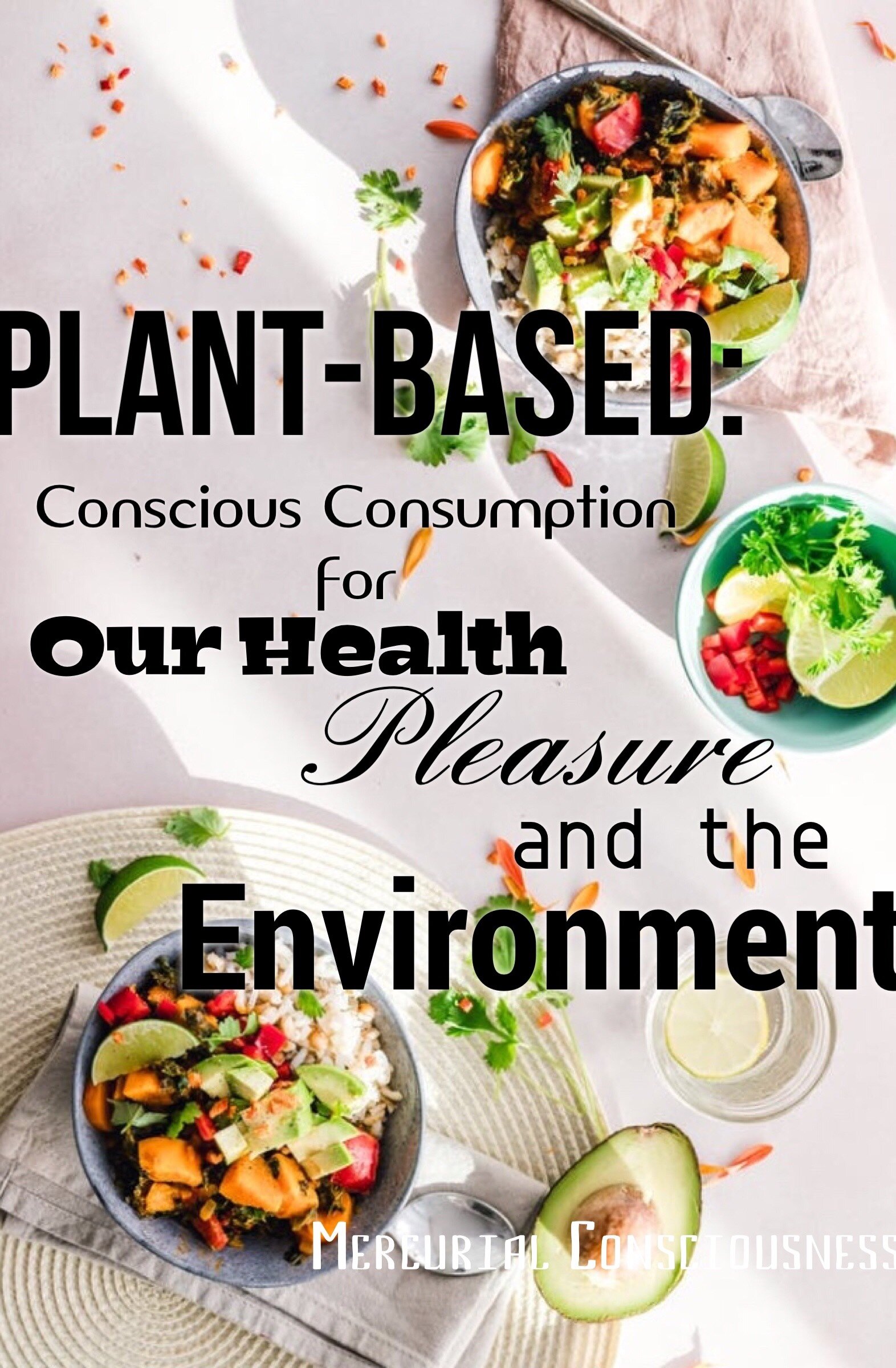Veganism is increasingly becoming more popular and changing the food industry. 2019 marked the introduction of plant-based meat alternatives available in store and in fast food restaurants. In 2020, Starbucks announced that they adding more plant-based items to the menu and encouraging customers to use plant-based milks in an effort to reduce the amount of environmental destruction that comes from the dairy industry. I have no doubt that we will see other companies making similar changes here in the near future to match with what the consumers are asking for. Whether the consumer is avoiding animal products for the animals, the environment, or their personal health, voting with our dollar is causing plant-based foods to go mainstream.
Veganism means to not consume any ingredient which comes from an animal: no meat and dairy, honey, gelatin, leather or carmine a dye made from crushed beadles used in yogurt. But a vegan diet doesn't inherently mean a healthy diet, many products are vegan, like Oreos and potato chips, but that doesn't make them healthy. Rather than defining a diet based on what I avoid, a plant-based diet is centered around what I do eat.
I advocate plant-based, conscious consumption: a diet full of plants, catering to your nutritional needs, with minimal animal products.
Use Animal Products Sparingly
This does not mean absolutely no animal products, but it means to use them sparingly and with respect to the animal. I'm not going to tell you that all consumption of animal products is bad, in fact, I support small farms and hunting when it is appropriate for the environment and we are careful to not waste what the animal gave its life for.
However, the industrial animal agricultural practice of hoarding animals in confined spaces, genetically modifying animals through cross-breeding to create chickens whose breasts grow so large they are too heavy to allow the chickens the ability to walk around, and dairy cows being continuously kept pregnant so that they can produce milk is not in alignment with conscious consumption.
This practice goes against basic ethics. Anyone who isn't a psychopathic killer would be horrified at how these animals are treated. Then to know that these industries are the main reason for environmental destruction in the world and is causing global warming. On top of that, to know that the consumption of animal products is the leading cause of the chronic diseases that kill most of developed societies. There's ample reasons to choose plant-based alternatives.
It's okay to still enjoy animal products, we are biologically hardwired to consume them when we needed to, but because we live in a developed world where we have plenty of plant resources to feed ourselves, we don't need to eat animals.
Mindfulness Exercise For Conscious Consumption
Conscious consumption means that we think about and give thanks to what we do consume. It means that we believe science and not celebrities for nutritional advice. It means that we eat for nutrition and for pleasure and are considerate of when we are over eating as a distraction for another form of nourishment.
Know where the ingredients come from. For produce, know where the plant was grown: if it was grown through industrial agriculture or on a small farm. Know if pesticides or herbicides were used during its production, and consider who's hands it went through to get to you. For animal products, know if the animals were raised on a small farm, where they were allowed appropriate space and the ability to roam, keep their babies with them and have a life of quality and adequate care, or if they come from a factory farm where the animals are undoubtedly abused.
Know the nutritional value of what you eat. The macronutrients like protein, carbs, and fat are valuable, but so are the vitamins, minerals, phytonutrients and therapeutic properties that they have on the body. Educate yourself on nutrition so that you can better appreciate how the food you eat impacts your body.
Thank the source. Give thanks for what was given in order to manifest this nourishment here for you today, and give thanks for what it will do to sustain your body.
What Does The Plant-Based, Conscious Consumption Diet Look Like?
Fruit, veggies, nuts and seeds, beans, and whole grains.
These are the foundation blocks for what the body needs to be healthy. The meat and dairy industries have used propaganda and paid studies to make us believe that we need animal sources of nutrients to be healthy, but this isn't true, and in fact, a plant-based diet offers more nutrients and wider variety than the standard western diet of meat, dairy and bread.
Some nutrients are difficult to get enough of, like iron, vitamin B, and it is appropriate to supplement when necessary, but also to look for foods rich in these essential compounds.
The plant-based, conscious consumption diet is a lifestyle. A way of being, backed by science and ethics. It is incredibly easy to make small dietary changed over time. And when the outcome of these changes are that you not only will live a longer, healthier life, but experience the reversal of chronic diseases like type 2 diabetes, heart disease, arthritis, it's worth the time and effort it takes to do research and meal prep.
Eating a healthy diet does not mean that you have to completely forgo your favorite foods. Eating them on occasion will have no significant damage to your health. Rather, it is the day-to-day actions that matter for long-term health and vitality. It's the difference between having a weekly glass of wine and being an alcoholic, eating cake on a friends birthday and having donuts every day for breakfast. The body responses to habits, and this diet encourages the habit of making healthy decisions for all beings, and not beating ourselves up when we don't meet that standard.
Sincerely,
Emilee Wright
A Mercurial Consciousness


